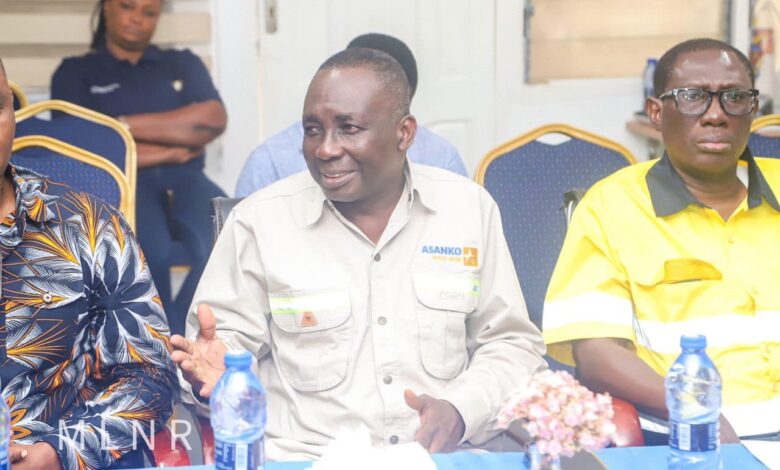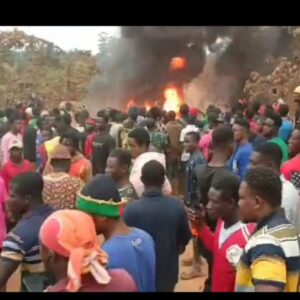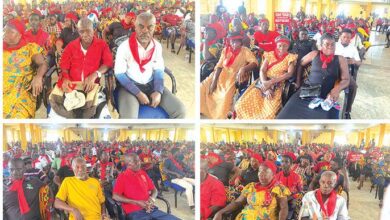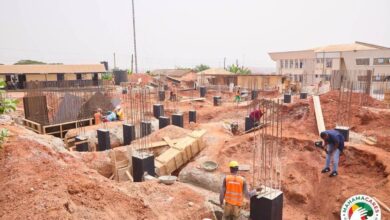Can Asanko Mines Employ Over 3,000 Youth in Tontokrom?
…Sheer Greed, Wickedness Cited; As Youth Resist Attempts to Deny Livelihoods

A near-fatal clash over the weekend between soldiers allegedly deployed by Asanko Gold Mines and residents of Tontokrom in the Amansie South District has raised serious concerns about the company’s ability to sustain the livelihoods of the local population, should it fully take over the contested mining concession.
The development comes amid increasing calls for large-scale mining companies to cede portions of their concessions to local communities to support the government’s flagship cooperative mining programme, which seeks to formalize and professionalize artisanal and small-scale mining.
The Archives checks reveal, over 3,000 local miners—both men and women—depend directly on the disputed mining site in Tontokrom for survival, with some families reportedly working the land for generations.
As tensions escalate, many observers familiar with the situation argue that Asanko Gold Mines has yet to demonstrate a meaningful commitment to addressing the socioeconomic consequences of displacing an entire community of artisanal miners.
Security analysts and community leaders have warned of potential unrest if the local population is left unemployed, urging a sustainable and inclusive resolution to the ongoing standoff.
Critics argue that without a clear and comprehensive plan to integrate local miners and their dependants into any new operational framework, the company’s continued presence may worsen tensions rather than promote development in the area.
Neglected Communities

Sources indicate that several communities within the catchment area of Asanko Gold Mines—including Manso Nkran, where the company actively operates—have seen little to no developmental impact from the company’s activities.
Many roads in the area remain in deplorable condition, and only a handful of local residents have reportedly been employed by the company, leaving the once-booming local economy grinding to a halt.
These frustrations, among others, have led residents to vehemently resist Asanko’s presence and what they describe as a forceful takeover of their land and livelihoods at Tontokrom.
Military Invasion
In the early hours of last Saturday, hundreds of youth in Manso Tontokrom took to the streets after receiving information about a possible military incursion aimed at securing the mining site for Asanko Gold Mines.
The youth blocked the main entry road to the community, setting tyres ablaze in protest. Approximately 50 military personnel who arrived at the scene were unable to enter the town due to the blockade.
The protest followed an earlier report by The Archives about the planned deployment of the military to the area.
No Retreat
According to local youth, they have mined the land for decades and are not prepared to relinquish it to a foreign-owned company.
Speaking to the media, Richmond Osei, a leader of the youth group, stressed that they are engaged in community mining, not illegal mining, and accused Asanko Mines of using military force to intimidate and displace them.
“This large-scale mining company has operated in Manso for years, yet we haven’t seen any development. They are leaving our youth unemployed and our community dusty. We won’t allow them to take over,” he lamented.
He recalled a deadly clash last year that resulted in the death of one community member and two soldiers, noting that the current protest was peaceful.
“We are calling on the government to intervene and settle this issue once and for all, because we will not surrender this land,” Osei said.
As part of the protest, community members invoked traditional deities, using schnapps, eggs, and fowls to curse those they claim orchestrated the military invasion.
The military personnel later withdrew from the area without any violent confrontation.
As of press time, calm has returned to the Tontokrom community, with residents resuming their daily activities.
However, the underlying tensions remain unresolved, and the community continues to call for government intervention to avoid a possible repeat of last year’s violence.
The situation has laid bare the growing friction between large-scale mining firms and local communities, reigniting the debate over equitable resource management, community mining, and sustainable development in Ghana’s mining sector.



